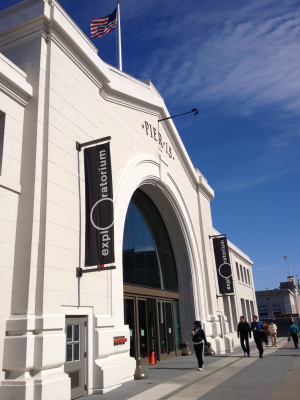New lenses, unproven results
Despite rise in special glasses, medical benefits are unclear
SEEING CLEARLY Sophomores Brit Paulson and Anneli Dolan work on homework while wearing their blue light glasses. Designed to filter out blue light from computers, the lenses look like regular glasses.
December 12, 2019
While some individuals suffering from headaches, strained eyes and sleeping problems point to blue light from digital screens as the cause, scientists have not come to a consensus on whether blue light emitted from phones, tablets and computers is harmful.
“If you want blue light lenses on your glasses I’ll sell it to you, but it’s not going to protect you from anything,” optometrist Clifford Lee at Invision Optometry said. “Some people do find comfort in wearing them and feel like their eyes are more comfortable and less stressed. There’s just no science that shows this kind of benefit.”
Blue light glasses, also known as BlueBlockers, are non-prescription glasses with a slight yellow or orange tint that filter out blue light. Individuals with prescription glasses can choose to add a blue light filter without impacting their corrective lenses.
Sophomore Brit Paulson says that her non-prescription blue light glasses help with migraines, especially when she is on her phone or doing homework on her laptop at night.
“I get migraines from looking at my computer a lot,” Paulson said. “I told my mom about it, and then she got blue light glasses for my entire family.”
Migraines and other headaches can result from the strain of focusing on a screen for long periods of time, not necessarily from blue light, according to Lee.
“Humans are designed to see the visible spectrum and blue is just one of those colors,” Lee said. “We have a blue cast on our screens, but it does not do damage to our eyes. The worst thing the computer can do is cause a person to have temporary symptoms like decreased blinking which leads to dry eyes and strained eyes from the muscle work of focusing.”
Blue light, which has a short wavelength and high frequency, can also impact an individual’s circadian rhythm which regulates sleep. Blue light is beneficial during the day because it helps with attention, reaction times and moods, according to Harvard Medical School.
Staring at screens at night tells the brain that it is still daytime and makes it more difficult to fall asleep, according to physics teacher Matt Woodard.
“There is still no negative health effects associated with blue light, but brightness definitely does stimulate the brain,” Woodard said. “That is why we rise with the sun and go to sleep at night when the sun goes down.”
Dimming screens using Night Shift, a built in feature on Apple devices, can help alert the body that it is time to go to sleep, according to Woodard. Paulson said that she wears her blue light glasses to help with sleeping in addition to using Night Shift.
“Sometimes when I forget to wear my blue light glasses, my eyes will start to feel kind of sore after a little while,” Paulson said. “When I keep my glasses on, I feel like they are actually helping. Maybe it’s just me thinking they’re working, but either way they make me feel a lot better and I’ve been sleeping better.”
While blue light glasses may help some individuals, another way to avoid headaches and sore eyes is to take regular breaks. Lee recommends looking up from the computer and out the window for 30 seconds every 15 minutes to ease focusing strain.
“It’s like you’re walking down the block with weights and you put them down every block for 30 seconds,” Lee said. “You can walk further and feel fresher. It’s hard for people to do that but that’s really the best advice.”













